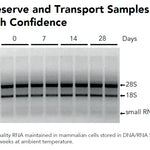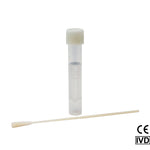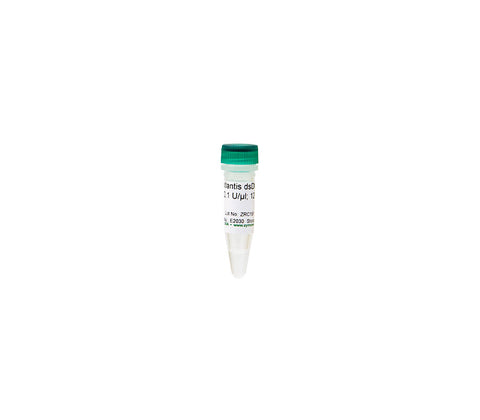Successfully Added to Cart
Customers also bought...
-
 DNA/RNA Shield (50 ml)Cat#: R1100-50DNA/RNA Shield reagent is a DNA and RNA stabilization solution for nucleic acids in any biological sample. This DNA and RNA stabilization solution preserves the...
DNA/RNA Shield (50 ml)Cat#: R1100-50DNA/RNA Shield reagent is a DNA and RNA stabilization solution for nucleic acids in any biological sample. This DNA and RNA stabilization solution preserves the... -
 DNA/RNA Shield SafeCollect Swab Collection Kit (1 ml fill) (1 collection kit)Cat#: R1160The DNA/RNA Shield SafeCollect Swab Collection Kit is a user-friendly collection kit for stabilizing the nucleic acid content of samples collected with a swab. DNA/RNA...
DNA/RNA Shield SafeCollect Swab Collection Kit (1 ml fill) (1 collection kit)Cat#: R1160The DNA/RNA Shield SafeCollect Swab Collection Kit is a user-friendly collection kit for stabilizing the nucleic acid content of samples collected with a swab. DNA/RNA...
Highlights
- Ideal for use in nucleosome mapping studies.
- Sold separately or as part of EZ Nucleosomal DNA Prep Kit (D5220).
Original Manufacturer
Satisfaction 100% guaranteed, read Our Promise
Innovated in California, Made in the USA
Highlights
- Ideal for use in nucleosome mapping studies.
- Sold separately or as part of EZ Nucleosomal DNA Prep Kit (D5220).
Original Manufacturer
Satisfaction 100% guaranteed, read Our Promise
Innovated in California, Made in the USA
| Cat # | Name | Size | Price | Quantity |
|---|
Description
Performance
Technical Specifications
| Concentration | 0.1 U/µl |
|---|---|
| Inactivation | 5X MN Stop Buffer or EDTA |
| Standard Reaction Time | 20 minutes |
| Storage | Store at -20°C for up to 12 months. Avoid repeated freeze/thawing. Prolonged storage should be ≤-70°C. |
| Unit Definition | One unit (U) is defined as the amount of enzyme needed to produce an increase in absorbance at 260 nm of 0.001 per minute, using 50 mg/ml high MW DNA in 50 mM Na-acetate pH 5.0 and 5 mM MgCl2 (Kunitz, 1950). |
Resources
Documents
FAQ
Once the nuclei are isolated, the enzyme sensitivity should be similar between different cell types. However, some cell lines will be more sensitive to the detergent in the Nuclei Prep Buffer and thus result in a loss of nuclei. You can dilute the Nuclei Prep Buffer 1:1 with dsDNase Digestion Buffer prior to nuclei isolation.
• Atlantis dsDNase is a double-stranded DNA specific endonuclease that cleaves phosphodiester bonds in DNA to yield oligonucleotides with 5’-phosphate and 3’-hydroxyl termini. Increasing the incubation time with Atlantis dsDNAse will increase efficiency and generate more mono-nucleosomal DNA.
• Micrococcal Nuclease (MNase) is a single and double-stranded DNA and RNA endonuclease. MNase is more specific for single-stranded nucleic acids, but cleavage is biased towards AT-rich and AU-rich sequences. MNase will result in more robust digestion compared to Atlantis dsDNase. Increasing the incubation time with MNase will increase efficiency of this enzyme and generate more mono-nucleosomal DNA.
• The enzyme selection depends on desired downstream applications.
Atlantis dsDNAse generates random-end, i.e. both blunt- and sticky-end DNA fragments and there is no specific length for overhangs.
Washing the trypsinized cell pellets with PBS is very critical step. Residual EDTA in the cell pellets will decrease both Atlantis dsDNAse and MNase digestion efficiency. Other considerations for incomplete shearing: • Check that the correct number of cells was digested. (D5220 kit: 1x106 mammalian cells) • If you only want mono-nucleosomal DNA instead of nucleosomal ladder containing mono-, di-, tri-nucleosomal, etc., you will need to increase the enzyme concentration. Based on our experience, we need to use >1U per Atlantis dsDNAse per million cells.
Need help? Contact Us


